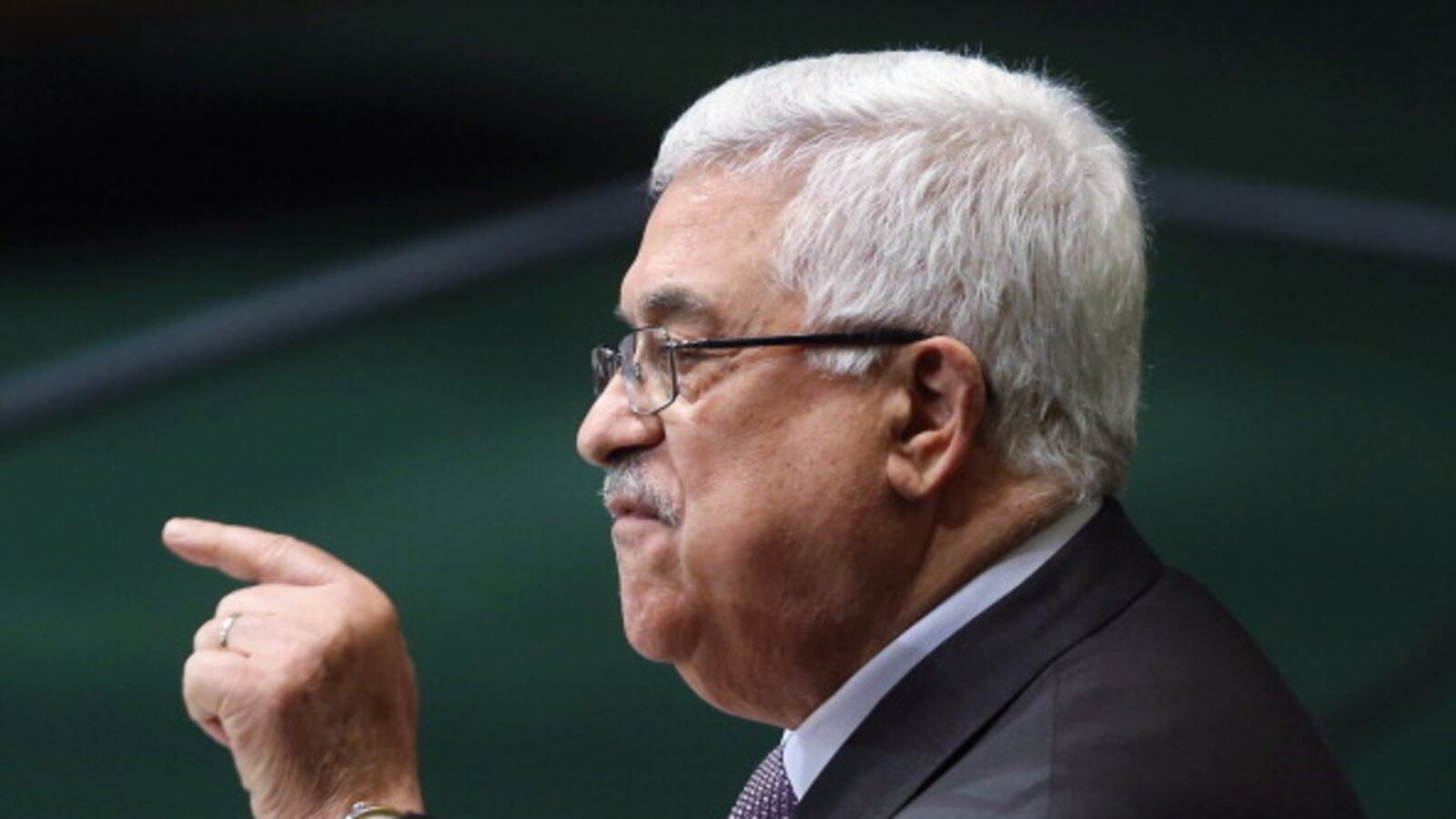A Palestinian columnist faces possible criminal charges after raising questions in an article two months ago about suspicious hiring practices at President Mahmoud Abbas’s office.Jihad Harb was summoned for interrogation Wednesday and accused of libel, slander and making a “direct insult” to public employees by alleging cronyism at the president’s office. Activists say he is the latest target of a “continued and widening” campaign to silence reporting on government corruption.

In Ramallah, a group of Palestinian journalists and lawyers gathered outside the building where Harb was being interrogated and waved signs reading “Yes to freedom of expression”. Mada, a media rights group, condemned the proceedings and demanded an end to such prosecutions, which it said reflected “a kind of indirect punishment to suppress freedom of expression through creating an atmosphere of fear among writers, journalists and citizens in general.”
Palestinian Authority officials often turn to the courts to respond to allegations of corruption in the press. In March, a newspaper article alleging shady dealings at a PLO embassy landed a Palestinian reporter in jail for eight days. The next month security forces arrested another after he started an anti-corruption Facebook group. In September, Abbas’ son filed a multi-million-dollar libel suit against The Washington Post Company.
Harb’s article, published online in August, cited a report by a Palestinian transparency watchdog which found irregularities in hiring at Abbas’s office. He questioned appointments by the president and unusual selection criteria for promotions as well as unnecessary delays. “The article does not contain any slander or defamation or contempt of the Palestinian Authority, and what I wrote was based on information and facts,” Harb told me today. He explained it was the last line that raised the ire of the director of Abbas's office; it said hiring decisions seem to be made around the card tables of "cafes in the temporary capital, where the presidential decisions related to senior position promotion, or maybe the whole country's affairs, are formulated."
Harb also says the president’s office filed an initial complaint on Sept. 3, but the case was delayed until this week out of reluctance on the part of the prosecutors who had hoped to avoid another media scandal. That reluctance reflects the absence of Ahmad al-Mughni, the former attorney general who was loathed by the Palestinian journalists he pursued for years on a largely ask-questions-later basis.
Al-Mughni’s tenure ended after crackdowns on Abbas’s critics, including a brazen move to censor the Web, which drew condemnation at home and abroad. Abbas threw al-Mughni under the bus in May, letting him take the blame and sending him to Internet companies to apologize. But many officials, including the communications minister who resigned after the filtering was uncovered, maintained that while the attorney general was hardly innocent, he was also a scapegoat. Few believed the attacks could have happened without Abbas’s knowledge.
With al-Mughni out of the picture, perhaps we’ll soon see who’s right. Harb was released Wednesday on a technicality, and it's unclear whether or not he will face charges. The outcome will either bolster Abbas’s and the PA’s purported commitment to press freedom, or prove that their critics were right all along.






